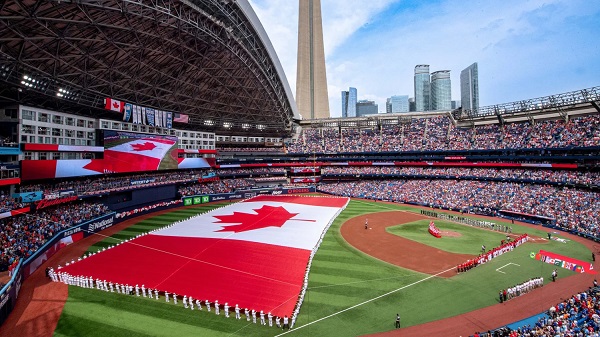Alberta
China’s ban on Canadian beef still in place year-and-a-half later; industry in dark
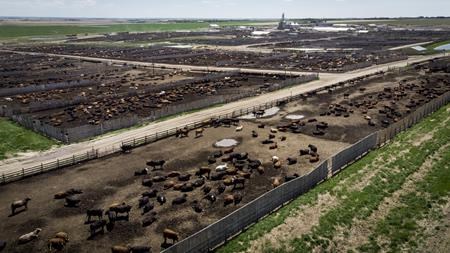
CALGARY — A Chinese ban on Canadian beef that industry officials expected would be short-lived remains in place 17 months later, and industry representatives say they remain in the dark about the reasons.
China has been blocking beef shipments from Canadian processing plants ever since an atypical case of BSE, or mad cow disease, was found on an Alberta farm in December of 2021.
At the time, Canadian officials expressed little concern that the case would have lasting market impacts. Atypical BSE develops spontaneously in about one in every one million cattle and unlike the classic BSE strain — which has been linked to the fatal neurological disorder Creutzfeldt-Jakob disease — it poses no health risk to humans and is not transmissible.
While most of Canada’s trading partners did not respond with any form of trade restrictions after the discovery of the case, South Korea and the Philippines joined China in suspending beef imports from this country.
However, both South Korea and the Philippines lifted the restrictions less than two months later, while China — which in 2021 was Canada’s third-largest beef export market, importing $193 million worth of product — has still not resumed trade.
“Most countries do not close when you find an atypical case,” said Dennis Laycraft, executive vice-president for the Canadian Cattle Association.
“It’s just a few that did and you know, all those other countries opened up fairly quickly. So yeah, really the outlier here is China.”
Adding to the confusion, Laycraft said, is the fact that both Brazil and Ireland have also recently had their beef blocked by China due to cases of atypical BSE in those countries. But China has resumed beef trade with both of those countries, and it took only a short time — in the case of Brazil, only four weeks.
Laycraft said he doesn’t know what the sticking point is when it comes to Canada, adding only that he doesn’t believe there is a scientific explanation.
“We’re pretty confident all of the technical requirements and information that was needed has been provided, to allow the decision to reopen,” he said.
“We certainly don’t believe there’s, on that side, any reason for it not to be. They just, you know, haven’t responded.”
In 2019, China blocked canola shipments from two major Canadian companies, not long after Huawei executive Meng Wanzhou was arrested by Canadian authorities. That ban lasted for three years.
Tensions between Canada and China have recently ratcheted up again, with the Canadian government on Monday expelling Chinese diplomat Zhao Wei, alleging he was involved in a plot to intimidate Conservative MP Michael Chong and his relatives in Hong Kong.
The renewed tensions have even led the canola industry to express concern that China will retaliate to Canada’s expulsion of its diplomat by blocking agricultural shipments.
But Gordon Houlden, director emeritus of the China Institute at the University of Alberta, said the beef industry’s ongoing issue demonstrates that some of Ottawa’s trade challenges with Beijing are pre-existing.
“Some people are jumping to the wrong conclusions and because of this latest exchange, the question of the diplomatic expulsions, they assume that it’s going to immediately lead to a whole series of further restrictions,” Houlden said.
“But some of these problems go back a long way.”
Houlden said it’s not abnormal for China to move slowly on the regulatory front, due to a combination of “bureaucracy and lethargy.” He added that China is not always keen to wield trade as a weapon because it is a major exporter itself and knows such tactics can backfire.
However, he said the fact that China has lifted similar restrictions against beef imports from other countries suggests that at some level, politics is likely playing a role in the delay. Houlden added that while it’s hard to know for certain what China’s motivation is on any given issue, it’s fair to say that Canada’s current relationship with China is frosty enough that Beijing is unlikely to make an effort to fast-track the beef issue.
“I think we can surmise that right now politics is not in a position to help solve the problem, and in fact may be part of the problem,” Houlden said.
Laycraft said during the year-and-a-half that the Chinese market has been closed, the Canadian beef industry has seen increasing sales into Japan, South Korea, Vietnam and other Asian countries. He said this has been due in large part to the Comprehensive and Progressive Agreement forTrans-Pacific Partnership, a free-trade agreement between Canada and 10 other countries in the Asia-Pacific region.
“We’d like to see things get back on a more normal track with China. We had some really good customers there that we were starting to build relationships with,” Laycraft said.
“At the same time, we’re doing very well in other markets in Asia … So we’re not in the same vulnerable position that potentially other products from Canada are.”
This report by The Canadian Press was first published May 11, 2023.
Amanda Stephenson, The Canadian Press
Alberta
Fact, fiction, and the pipeline that’s paying Canada’s rent

From Resource Works
Is the Trans Mountain a fake, like some say the moon landing was faked?
It’s hard to interpret otherwise a persistent claim being made in media by British Columbia’s premier, David Eby.
This week he said that Alberta is “not even using” the new Trans Mountain pipeline from Edmonton to Metro Vancouver.


Could that be true? We decided to look into it.
Here’s what we discovered.
Since May 2024 when the Trans Mountain expansion project was opened, Alberta oil has flowed steadily down the pipeline from its origin in a suburb of Edmonton.
Credible international news organizations have reported that the new pipeline is 85% full. Indications are that by the period 2027-28, it will reach as close to 100% full as it’s possible to.
The number of ship calls to the Westridge coastal loading facility in Burnaby is on track to reach 400 by the end of the year. This strongly supports the contention that Alberta oil is flowing through the pipeline.


https://www.statcan.gc.ca/o1/en/plus/8439-trans-mountain-pipeline-delivering
I often say Trans Mountain is “paying Canada’s rent,” and I mean it literally. Ottawa owns the pipeline through Trans Mountain Corporation, and it’s already sending more than a billion dollars a year back to the federal treasury in dividends, interest, and fees.
It’s also boosting export revenues by letting Alberta oil reach world markets instead of being trapped at a discount — raising royalties, taxes, and paycheques across the Prairies. And every tanker that sails from Burnaby keeps tug crews, port workers, and coastal suppliers in business. That’s real money flowing through the economy — the kind that actually pays the rent for Canada.
In total, Resource Works examined nine claims that would all need to be true if Premier Eby is telling the truth about the pipeline being empty:
Truth Test: “Alberta isn’t even using the pipeline we bought them last time.”
| Category | Claim or Implication | Evidence / Data | Source(s) | Finding / Truth Rating |
| 1. Pipeline utilization | TMX is unused or empty. | Trans Mountain reports 757,000 bpd throughput on an 890,000 bpd capacity system (≈ 85 %). | Trans Mountain Q1 2025 Financial Results; Reuters (30 Jul 2025). |  False — pipeline is heavily used and approaching full capacity. False — pipeline is heavily used and approaching full capacity. |
| 2. Export volumes | Few or no shipments. | 306 vessels loaded at Westridge Marine Terminal by Q2 2025 (~20–25 per month). | Trans Mountain Q2 2025 Results; CER Market Snapshot (Sept 2025). |  False — consistent, large-scale exports are underway. False — consistent, large-scale exports are underway. |
| 3. Financial returns | No financial benefit to Canadians. | $729 million returned to federal government YTD 2025; projected >$1.25 billion for year. | Trans Mountain Q2 2025 Results. |  False — major positive fiscal returns already realized. False — major positive fiscal returns already realized. |
| 4. Shipper commitments | No demand for pipeline capacity. | 80 % of capacity contracted to long-term shippers; 20 % reserved for spot. | S&P Global Commodity Insights (Feb 2025); CER Snapshot. |  False — demand is locked in by long-term contracts. False — demand is locked in by long-term contracts. |
| 5. Operational timeline | Project still inactive or delayed. | Commercial service began May 1 2024; steady throughput growth each quarter. | Trans Mountain Corporate Reports 2024–25. |  False — fully operational since 2024. False — fully operational since 2024. |
| 6. Regulatory data | No verified data exist. | Monthly throughput published by CER and Trans Mountain Corp. | Canada Energy Regulator (CER Data Portal). |  False — independent regulators in fact consistently confirm the data. False — independent regulators in fact consistently confirm the data. |
| 7. Market impact | No improvement to Alberta’s market access. | WCS-Brent differential narrowed; Asia exports up sharply. | CER Market Snapshot (Sept 2025); S&P Global 2025 report. |  False — there is clear evidence of improved market access. False — there is clear evidence of improved market access. |
| 8. Ownership context | B.C. or Alberta “owns” the pipeline. | Owned by Government of Canada via Trans Mountain Corporation. | Finance Canada; Trans Mountain Corp. Ownership Statement. |  Misleading — federal ownership doesn’t mean Eby “bought Trans Mountain for Alberta.” Misleading — federal ownership doesn’t mean Eby “bought Trans Mountain for Alberta.” |
| 9. Provincial benefit analysis | No benefit to B.C. or Alberta. | Royalties, tax revenue, and employment gains in both provinces; marine services in B.C. | TMX Economic Impact Assessment 2024; CER regional reports. |  False — both provinces gain fiscal and employment benefits. False — both provinces gain fiscal and employment benefits. |
Last year, on three occasions I visited the Westridge Marine Terminal, twice on tours of the land-based facilities and the third time from the water. Ships were docked at the terminal on all three occasions, and I was told by staff that they were being loaded.
I didn’t actually see any oil at the oil terminal, but…
I have to admit I did not actually see (or smell) any oil. But I’m also aware that it is very much in the interest of the Trans Mountain Corporation to never expose any oil to where it can be seen, touched or smelled, since this would result in stiff fines and other harsh repercussions.
At this point, I have to say that there is no supporting evidence whatsoever that Alberta is using the Trans Mountain pipeline as a moon landing style hoax for some nefarious goal. There is no sign of a massive fraud that required collaboration among energy regulators, Alberta oil producers, the pipeline company, the international business press, numerous federal ministers, trade union leaders, numerous environmental organizations that expend enormous efforts to try to curtail shipments of the oil that they say moves through the pipeline, and the many First Nations that have actively supported from and benefit from the project in its completed state.
Of course, I’m well aware there is a political context here. Since October 1, Premier Eby has been engaged in a war of words with Alberta Premier Danielle Smith. She announced that she is determined to see get built another new pipe from her province to a federally regulated port somewhere on the Pacific coast.
And to be clear, this isn’t about giving Alberta a free pass. Premier Smith isn’t blameless either — she’s been happy to turn complex national issues into provincial sound bites when it suits her. The difference is that Canada can’t afford leaders on either side of the Rockies who substitute theatre for truth.
Premier Eby is right when he says British Columbians should not be forced to give up opportunities because another province wants to do something. Labour market fears are legitimate as we’ve seen in the recent past. But when it comes to infrastructure and investment opportunities, time and again Canadians have learned the hard way that “a bird in the hand is worth two in the bush.” There is no guarantee that today’s opportunities, pushed away, will materialize again at any point in the future.
There’s also a public context. At no moment in recent times have British Columbia residents been more supportive of the idea of building more oil pipeline infrastructure. The following slide from a poll by Innovative Research Group (shared by pollster Greg Lyle at a recent event organized by Resource Works) is consistent with other findings:

Even without out this quite exceptional condition, the current situation deserves a vigorous public conversation. It also deserves the truthful use of information.
My final verdict is this: We can all be fully confident that the Trans Mountain Expansion is indeed 85 per cent full, that hundreds of tankers have already sailed, and that more than a billion dollars has flowed back to Canadians.
Bottom Line
The facts show a functioning, profitable national asset:
- Operational since May 2024
- 85% utilized and rising
- Hundreds of ships exporting Canadian oil
- Over $1 billion flowing back to the public purse from Trans Mountain – that’s even before counting the upstream employment and impacts
This Resource Works analysis is based on public reports from Trans Mountain Corporation (2024 & 2025), Canada Energy Regulator (2025), Statistics Canada, S&P Global Commodity Insights, and Reuters.

Stewart Muir, visting the Trans Mountain pipeline’s Westridge Marine Terminal.
Alberta
Alberta Is Where Canadians Go When They Want To Build A Better Life

From the Frontier Centre for Public Policy
One in three Canadians chooses Alberta to start over. But to stay Canada’s top destination, it must fight Ottawa’s barriers and complacency
No province has captured the Canadian imagination quite like Alberta—and not because of oil.
One in three Canadians leaving their provinces in the past five years headed to Alberta. They were escaping stagnant wages, high housing costs and suffocating bureaucracy. They came for freedom and opportunity, and Alberta delivered. Its edge is cultural: it rewards enterprise instead of strangling it.
The question now is whether Albertans can keep that edge before Ottawa and complacency close in.
Prosperity, like liberty, vanishes the moment people stop fighting for it. If Alberta wants to remain Canada’s economic engine, it must continue to move forward, tearing down old barriers while fending off the new ones that Ottawa and other provinces are always erecting.
The cost of standing still is staggering.
Economists say provincial trade barriers (rules that prevent goods, services, and workers from moving freely) cost the Canadian economy up to $130 billion a year. For Alberta, even a 10 per cent reduction would be worth $7.3 billion a year.
When Quebec killed the Energy East pipeline that would have carried Alberta crude to eastern refineries, Alberta lost the chance to export oil worth as much as $15 billion annually.
That’s not theory. That’s lost paycheques, lost tax revenue and public services that never materialized.
Alberta has always been more willing than others to break free from the barriers that hold back growth. Liquor sales were privatized decades ago, as were property registries. The New West Partnership with Saskatchewan, Manitoba and B.C. opened labour mobility and procurement, though it has since stalled. Alberta doesn’t impose cultural tests and it doesn’t levy a provincial sales tax. Families arrive because life here is easier. They can work, start a business, raise kids or simply breathe without bureaucrats looking over their shoulder.
But cracks remain. Liquor shelves may be free, but the Alberta Gaming, Liquor and Cannabis Commission monopoly clogs the warehouse. Professional associations in law, teaching and health care are slow to recognize credentials and drown their members in red tape.
Procurement often tilts local, because, apparently, free markets stop at the city line. And like every other province, Alberta still bows to Ottawa’s anticompetition telecom rules, the dairy and poultry cartel and the banking oligopoly, systems that consistently benefit Quebec farmers and Bay Street lenders at Alberta’s expense.
And as if the old cracks weren’t enough, new barriers are appearing. One of the worst is protectionism. Canadians love mocking Donald Trump’s tariffs, yet happily embrace the same thing at home. “Buy local” sounds warm and fuzzy but props up cartels in groceries, banking, telecom and construction. The truth? We’ve imposed more barriers on ourselves than Trump ever dreamed of.
Prime Minister Mark Carney exemplified the problem when he promoted subsidies for canola farmers. It was a double insult. First, it showed Ottawa would rather hand out cash than negotiate hard. Second, it reminded farmers that the “help” isn’t free. They pay for it through their own taxes, scooped from Saskatchewan and Alberta, laundered through federal bureaucracy, then mailed back with a ribbon.
Carney also vowed that interprovincial barriers would vanish by July 1, 2025. That deadline came and went. His shiny new “process” for expediting infrastructure looks like more of the same: more Ottawa mediation that risks slowing everything down.
But it isn’t only economics standing in the way. Ideology is becoming a barrier of its own. Diversity, equity and inclusion has morphed into a system for entrenching gatekeepers. It compels people to think and act in ways they didn’t choose. It drains productivity, creates make-work compliance jobs and sorts people into categories. Worst of all, it punishes anyone who doesn’t conform. Alberta resists this infection better than most, but its universities and federally dependent agencies are already hooked.
Then comes debanking. In 2022, Ottawa showed how quickly it could freeze accounts, and banks complied without hesitation. Since then, regulators have only expanded their reach under the banner of anti–money laundering and climate policy. The message is blunt: if Ottawa decides your sector is undesirable, access to financial services can vanish. For Alberta, with its energy industry branded a planetary threat, this is no hypothetical.
A free economy is meaningless if citizens can be financially exiled from it by decree. Alberta must shield its people by turning ATB, its provincially owned bank, into a fortress institution and enshrining access to financial services as a civil right.
So what does moving forward mean? It means doubling down on being the most desirable province to live and work. That requires bold reforms. Cut regulators down to size. Protect banking access in law. Decentralize big-city governments to make them more accountable and give residents real choices. Reform health care to expand choice and slash wait times. Deregulate housing and trucking to lower costs. Confront public-sector unions that act as ideological monopolies.
Canada loves to brag about free trade, but governs like a feudal kingdom. Alberta has already shown that a freer path is possible. The task now is to resist cartels, fight the banks, tear down old walls and stop new ones from rising.
Alberta has always been a frontier of builders, risk-takers and prosperity seekers, and to thrive it must keep moving. If Alberta leads, it will stay prosperous and desirable. If it falters, doors will close.
The choice is clear: Alberta can either be strangled by regulations or break free and keep its frontier spirit alive.
Marco Navarro-Genie is vice-president of research at the Frontier Centre for Public Policy and co-author, with Barry Cooper, of Canada’s COVID: The Story of a Pandemic Moral Panic (2023).
-

 Media1 day ago
Media1 day agoResponse to any budget sleight of hand will determine which audience media have decided to serve
-

 Frontier Centre for Public Policy24 hours ago
Frontier Centre for Public Policy24 hours agoCanada’s Democracy Is Running On Fumes
-
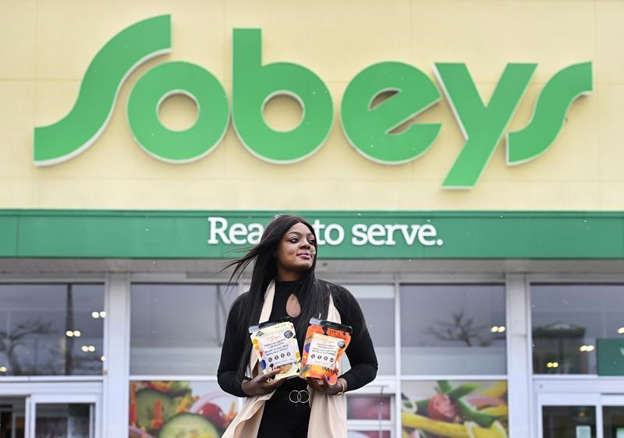
 Business1 day ago
Business1 day agoYour $350 Grocery Question: Gouging or Economics?
-
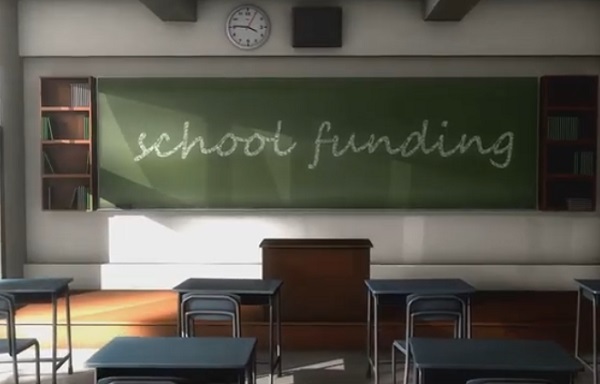
 Education24 hours ago
Education24 hours agoClassroom Size Isn’t The Real Issue
-

 International18 hours ago
International18 hours agoMelania Trump quietly reunites children divided by Ukraine war
-
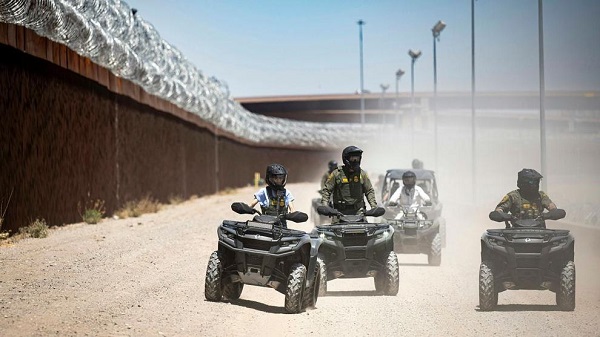
 illegal immigration18 hours ago
illegal immigration18 hours ago$4.5B awarded in new contracts to build Smart Wall along southwest border
-

 Also Interesting1 day ago
Also Interesting1 day agoLocal, Online, and Booming: The Business Shift Happening Across Alberta
-

 COVID-198 hours ago
COVID-198 hours agoThe Trials of Liberty: What the Truckers Taught Canada About Power and Protest


